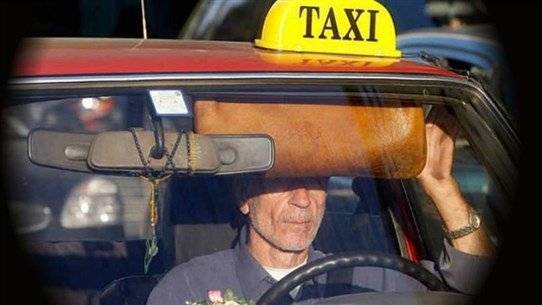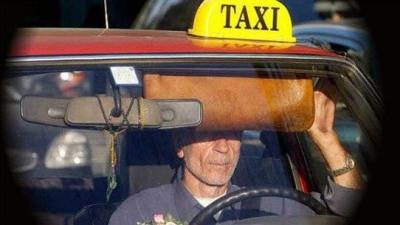Amidst the election of the president and vice-president of the parliamentary council, taxi drivers "whistle" due to the lack of work. The taxi has disappeared into the abyss of gasoline and hitchhiking, and their talk about "our house is ruined" confirms that the taxi is saying "bye-bye". It's true that Abu Ali, the veteran driver on the Nabatieh-Duwayr line, has not retired from his profession for thirty years, yet he stands at a crossroads; bankruptcy has turned his life to ashes, in an era where the taxi is out of the equation. This is due to several key factors starting with the rise in gasoline prices, followed by increased transportation costs and a decrease in the number of passengers, leading to the disintegration of the sector and its entry into the final tunnel.
The drivers' calls for help did not improve their situation; on the contrary, it worsened. The most alarming issue is that they now live "piece by piece," pooling together what little they can from one another, a first in public transportation. Mohammed stands at the entrance of the emergency services, smoking his cigarette in vain as he seeks a way out of his crisis. His mother has fallen ill, and her treatment requires 2500 U.S. dollars, which insurance does not cover because the device falls under medical supplies that must be paid in fresh dollars. He suffers most from the fact that he is now without work; the taxi today is like an unemployed person, completely useless.
The taxi drivers have faced a severe setback these days, with many abandoning the profession, while others hesitate to leave. Those who remain on the road have no strength or power, like Bilal, who started working at the peak of the crisis when driving a taxi was a lucrative job, and the driver was the "king" of his time. However, circumstances have turned upside down. With the onset of the dollar crisis and the subsequent gasoline and insurance losses, Bilal suffers from the severity of the crises. He relied on insurance for his daughter’s kidney failure medication, but today he stands empty-handed. What can he do? Where will he get the money for the exorbitantly priced medicine? His greatest concern is that he will have to sell his car to provide for his daughter’s medicine. He admits that the situation has drained him greatly: “Sometimes I don’t have money to buy food for my family; every day our situation gets worse,” and his biggest fear is that gasoline prices will rise further. “Then we might become beggars at God's door, because the state doesn’t care about the driver.”
The drivers have not received their rights despite all the protests witnessed in the streets. Their demands have gone unheeded; there has been no decision to provide subsidized gasoline or even to raise taxi fares. “The movements were superficial,” says Abu Hashim, who spends long hours waiting for a passing customer in vain. “Customers these days either hitchhike or walk to save money, and if a customer does come, the cost of transporting them exceeds the fare, which makes me reconsider working because what I earn isn’t even enough for gasoline, let alone for the outrageous subscription bills or the doubled water bills. What about food and medical care? The state has turned us into living corpses.”
The life of a taxi driver has become a nightmare, as the economic crisis has put them in a coma, enforcing austerity and scarcity upon them. Their circumstances are dire; they have lost their dignity, their insurance, and their jobs. Even the red number has become worthless, as its owner was once akin to a deputy in miniature. All of this has happened in two years; everything has turned upside down. Most drivers are looking for other work because their job now yields only enough for half a tank of gasoline, while it previously overflowed and was ample, like Abu Mohammed's case, who has abandoned the taxi to sell a traditional musical instrument as a temporary solution until the situation improves in the sector.
At the corner of Kfar Joz, Abu Mohammed stands playing his instrument, which rests on his taxi, hoping to attract a customer who loves the instrument and its music. It was once a friend of parties during better days, before modern machines stole its role. However, Abu Mohammed has returned to craft it from bamboo and adds his own touch to it, saying, “The driver has no bread these days, he lives under very difficult conditions. His concern is to provide medicine for his wife, who suffers from diabetes and hypertension, but how? He doesn’t know. He understands the circumstances are tough, but he is counting on selling the musical instrument. ‘From driver to musical instrument seller, that is my situation; I play for my pain—what can we do?’”
The era of taxi driving has ended for good, as the crisis and its harsh repercussions have struck one of the most vital sectors in Lebanon, which was the backbone for thousands, simply because the government refused to provide two tanks of subsidized gasoline that would ensure the continuation of this sector, leaving the drivers at the brink of poverty.




